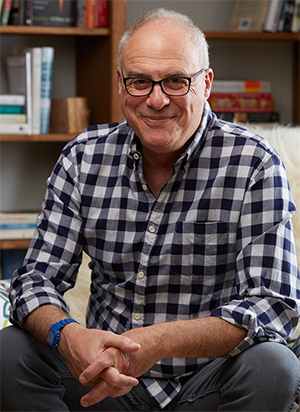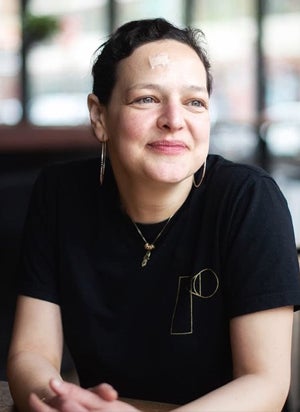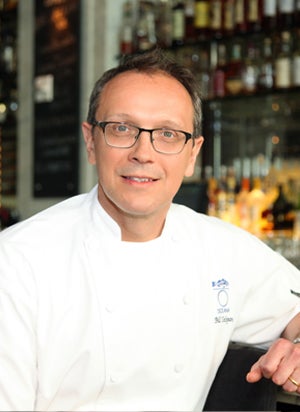
How 3 Top Chefs Are Addressing Factory Farming
Chefs have a unique responsibility—and opportunity—to cook according to their values. We turned to three of our favorite food industry celebrities to find out their motivation, inspiration and top tips for avoiding factory farmed foods.
Mark Bittman
| Naama Tamir
Co-owner of Lighthouse in Brooklyn, New York | Bill Telepan
Executive Chef at Oceana in Manhattan, New York |
ASPCA: What motivates you personally to address factory farming?
Mark: Well, in a word, horror. The reality of what they’re doing—producing tremendous amounts of toxic waste and greenhouse gases, poisoning their communities, torturing animals, using precious resources—is just an abomination. And I think if more people could see what factory farms actually look like, feel like, we’d be much closer to shutting them down.
Naama: Industrial, factory farming has a negative impact on the planet we all live on. The toxic runoff, cruelty and linear, profit-driven mindset impact everyone—not only the individuals choosing to consume its products. Factory farming pollutes our shared resources and causes illnesses and long-term damage to all of us, particularly to populations that do not have the resources to protect themselves against it.
Bill: I believe factory farming has a negative impact on the environment and that it is not as healthy for us as sourcing quality ingredients from small farms and local purveyors.
ASPCA: What advice would you give to someone trying to incorporate more plant-based foods into their diet?
Mark: Don’t be too strict. Enjoy yourself. Buy less meat, and buy better meat. Don’t feel like you have to make all the changes at once: Just try to move in the right direction.
Naama: Buy more organic, local produce from farmers you get to know, buy less processed food, cook more often, invest in good olive oil, and pay attention to how your body, mood and energy feel after eating a healthy meal.
Bill: Two pieces of advice I would give are to learn basic skills in vegetable cooking and to replace some of your meat with vegetables. Oh, and maybe incorporate one or two days where you go meatless.
ASPCA: How do you shop for groceries with your values in mind, without losing your mind—and how do you balance all the considerations and practicality?
Mark: I just try to buy real food—mostly food without much of a label. We all know that we should be eating more from the plant world and less from the animal and junk food world . . . and that’s a pretty simple guiding principle.
Naama: There is always a balancing act of convenience, pricing and values, but that's just a part of life. Having the New York City Greenmarkets and amazing purveyors around makes my life so much easier. If you’ve ever bought anything from these farmers, you know the difference between picking produce off a shelf in the supermarket and having direct access to your growers. I derive pleasure and pride from using my buying power to support farmers I love.
Bill: It does take a little time, but I read labels, try new things, try not to be afraid of failure, buy fresh rather than processed, try local and/or organic if possible and don't look at it as a chore. Cooking should be a pleasure—take your time cooking and shopping with others to make it more enjoyable.
We applaud these iconic chefs for their efforts to avoid factory farmed food and instead support more humane, sustainable practices. Feeling inspired? Resolve to make a real difference for animals, the planet and your health by joining our Factory Farm Detox, a one-week challenge to eliminate factory farmed food from your diet. We’ll give you all the tools you need to kickstart new habits and send a clear signal to the food industry that it’s time for positive change. Join this massive movement now!




